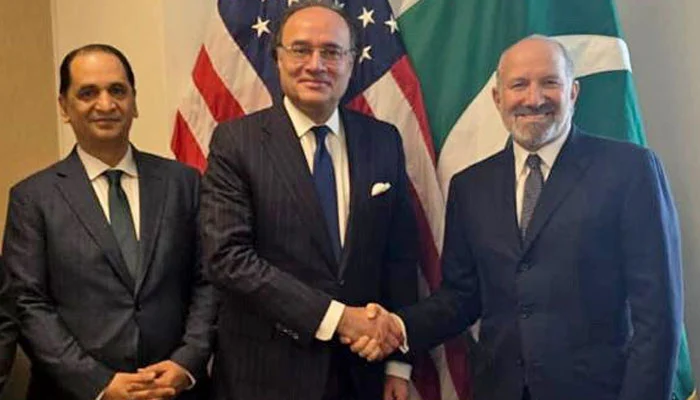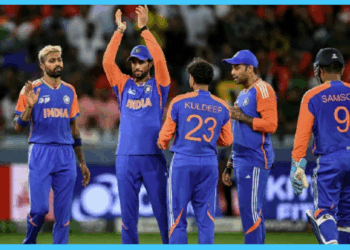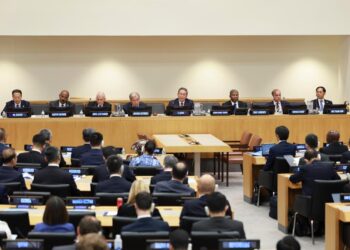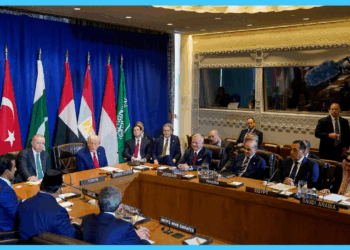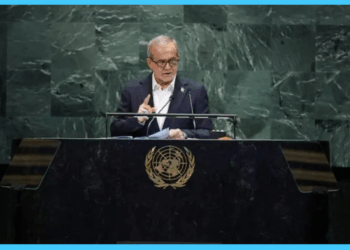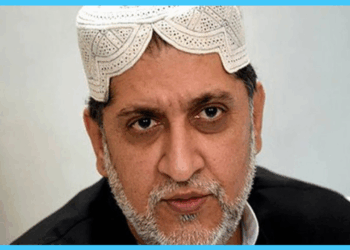ISLAMABAD (Web-Desk); In a major diplomatic and economic breakthrough, Pakistan has finalized a significant trade agreement with the United States, a move hailed as a milestone in bilateral relations and a symbol of growing mutual trust.
U.S. President Donald Trump confirmed the development on social media, stating that both countries will cooperate closely in exploring Pakistan’s untapped oil reserves.
“We have just concluded a deal with the country of Pakistan, whereby Pakistan and the United States will work together on developing their massive oil reserves,” Trump announced, adding that they were in the process of selecting an oil company to lead the partnership.
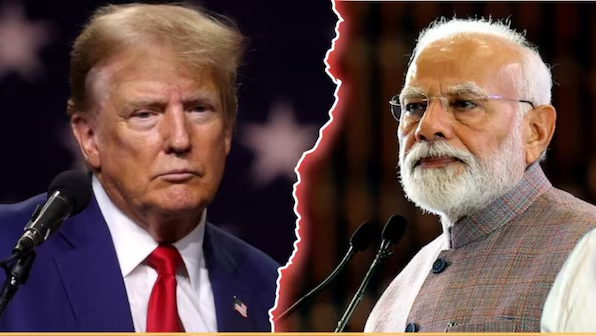
The announcement comes at a sensitive time in regional geopolitics, as India struggles to secure its own trade agreement with Washington. India now faces the imposition of a steep 25% tariff on its exports to the U.S. and is under scrutiny over its continued energy and arms ties with Russia.
According to Pakistan’s Ministry of Finance, the agreement was finalized during high-level meetings in Washington between Finance Minister Muhammad Aurangzeb and top U.S. officials, including the Secretary of Commerce and the U.S. Trade Representative. Pakistan’s Ambassador to the United States, Rizwan Saeed Sheikh, and Commerce Secretary Jawad Paul were also part of the delegation.
The ministry’s statement highlighted that the agreement will reduce tariffs, especially on Pakistani exports to the U.S., and is aimed at promoting trade, enhancing market access, and attracting U.S. investment in Pakistan’s key sectors, including energy, minerals, IT, and digital finance.
“This deal reflects a broader economic and strategic partnership that’s now taking shape,” Aurangzeb told Geo News. He described the discussions as highly productive and thanked the private sector for playing a pivotal role in the negotiations, particularly in addressing the trade imbalance.
Official U.S. data indicates that goods trade between the two countries reached approximately $7.3 billion in 2024, up from $6.9 billion the previous year. However, the U.S. goods trade deficit with Pakistan increased by 5.2%, standing at around $3 billion.
Deputy Prime Minister and Foreign Minister Ishaq Dar, who had earlier hinted that the agreement was imminent, confirmed the news with a post on X, saying, “Pakistan concludes deal with USA, AlhamdoLilah.”
Dar had met with U.S. Secretary of State Marco Rubio a week earlier, where both sides emphasized the importance of expanding cooperation in strategic sectors, particularly minerals and mining.
President Trump’s confirmation of the deal came as he simultaneously announced a 25% tariff on Indian exports to the U.S., citing concerns over India’s trade practices, military ties with Russia, and alignment with BRICS—a group Trump labeled as “anti-American.”
India’s position has been that New Delhi and Islamabad must resolve bilateral issues without foreign mediation. However, Trump claimed credit for facilitating the May 10 ceasefire between India and Pakistan, which followed a brief military flare-up triggered by a militant attack in Indian-occupied Kashmir. While Islamabad welcomed U.S. efforts to de-escalate tensions, India has denied that Trump played a role in brokering the truce.
The imposition of tariffs on Indian exports has sparked concern among Indian exporters, especially in labor-intensive sectors like textiles, footwear, and furniture. According to SC Ralhan, president of the Federation of Indian Export Organisations, the new tariff will make Indian goods less competitive in the U.S. market compared to those from Vietnam and China.
Trump has also suggested that penalties against India are linked not just to trade but also to its involvement in the BRICS alliance. He recently warned that countries aligning with BRICS could face additional tariffs as high as 10% on top of existing rates.
As part of his broader economic strategy, Trump also signed a proclamation this week ordering a 50% tariff on certain copper imports, citing national security concerns. Meanwhile, trade negotiations continue with other countries, many of which have accepted lower tariff arrangements—Vietnam at 20%, Indonesia at 19%, and Japan and the EU at 15%.
For Pakistan, the newly signed trade deal represents a strategic win and a chance to strengthen its economic base. With improved market access and U.S. investment potentially flowing into sectors like infrastructure and energy, Islamabad hopes this partnership will deliver long-term economic gains and geopolitical leverage.








